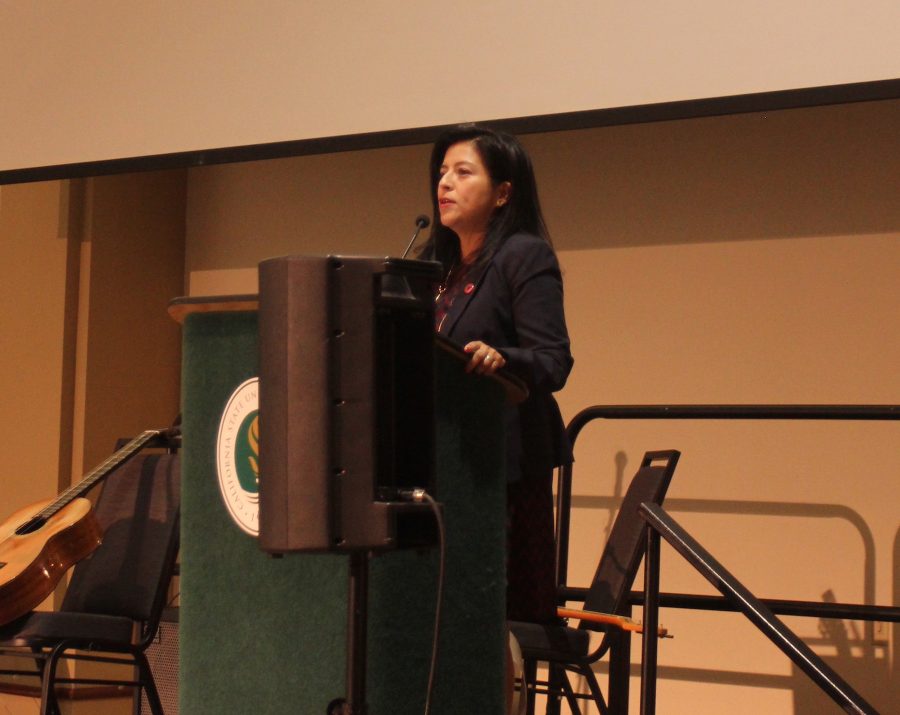Sacramento State continued to celebrate Cesar Chavez Legacy Week this Wednesday when a collective of campus groups held a luncheon for Sacramento State students and faculty, with a keynote address by Christine Chavez, granddaughter of the workers’ rights activist.
The luncheon was organized by The Serna Center, The College Assistance Migrant Program and the Associated Students, Inc.
Chavez works as the farmworker coordinator for the U.S. Department of Agriculture in Washington D.C., and is also one of 32 grandchildren of Cesar Chavez.
Chavez reflected on how her grandfather not only made an impact on the Latino community as a whole but also on his own family.
“Two of the most important lessons I learned from him where about solidarity and commitment,” Chavez said.
Cesar Chavez was known to never stay at hotels all across the United States because he could find a supporter in any city and stay at their homes. Christine said that she has visited locations such as Maine, Boston, Texas and Nevada and has heard people tell her that her grandfather stayed at their house.
It was when she was 16 that Christine started to realize how important her grandfather really was.
“I began to see him as a civil rights leader and as a labor leader,” she said. “At the age of 61 my grandfather conducted his longest public fast of 36 days on water only to bring public attention to the pesticide poisoning of farmworkers and their children.
“While he fasted week after week, we saw my grandfather go from a very active and vibrant person to being bedridden and almost losing his life. I never witnessed that level of commitment and dedication in any person before or since.”
After Christine’s keynote address there was a performance by the Si Se Puede All-Star Band.
The band was led by guitarist and songwriter Abel Sanchez, who created the group after being inspired to write a song dedicated to Cesar Chavez and the struggles of farm workers and their families: “Song for Cesar.”
Sanchez discussed how Cesar Chavez was able to incorporate music into his movement for the Latino community.
“(Cesar Chavez) knew it was a part of history and also important to his movement,” Sanchez said. “After long hard days, (farmworkers) would be entertained and also tell the story of what their struggle is about.”
Norma Mendoza, the program coordinator of the Dreamer Resource Center, said that she believed events such as the luncheon and the events continuing on for Cesar Chavez Legacy Week are “very impactful,” particularly the band’s performance.
“It inspired and motivated me to continue advocating,” she said






























































































































